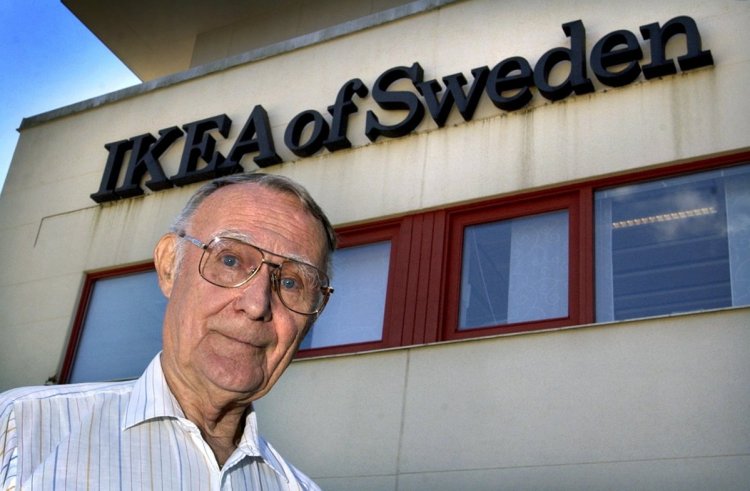STOCKHOLM — Ingvar Kamprad, the IKEA founder who turned a small-scale mail order business into a global furniture empire, has died at 91, the company said Sunday.
IKEA Sverige, the chain’s Swedish unit, said on Twitter that Kamprad died Saturday at his home in Smaland, southern Sweden. Later it said he died peacefully following a short illness.
“He will be much missed and warmly remembered by his family and IKEA staff all around the world,” the company said.
Jesper Brodin, CEO and President of the IKEA Group, said Kamprad’s “legacy will be admired for many years to come and his vision – to create a better everyday life for many people – will continue to guide and inspire us.”
Kamprad’s life story is intimately linked to the company he founded at age 17 on the family farm.
His work ethic, frugality and down-to-earth style remain at the core of its corporate identity today. But his missteps in life, including early flirtations with Nazism, never rubbed off on IKEA, one of the world’s most recognizable brands.
Kamprad formed the company’s name from his own initials and the first letters of the family farm, Elmtaryd, and the parish of Agunnaryd where it is located. It’s in the heart of Smaland, a forested province whose people are known in Sweden for their thrift and ingenuity. Kamprad possessed both.
Later in life, his name often appeared on lists of the world’s richest men, but he never adopted the aura of a tycoon. He drove a modest Volvo and dressed unassumingly. In a 1998 book that he co-authored about IKEA’s history, he described his habit of visiting vegetable street markets right before they closed for the day, hoping to get a better price.
Born on March 30, 1926, Kamprad was a precocious entrepreneur who sold matchboxes to neighbors from his bicycle. He found that he could buy them in bulk very cheaply from Stockholm, and sell them at a low price but still make a good profit. From matches, he expanded to selling fish, Christmas tree decorations, seeds and later ballpoint pens and pencils.
Kamprad soon moved away from making individual sales calls and began advertising in local newspapers and operating a makeshift mail-order catalog. He distributed his products via the local milk van, which delivered them to the nearby train station.
In 1950, Kamprad introduced furniture into his catalog, pieces that were produced by local manufacturers in the forests close to his home. After the positive response he received, he soon decided to discontinue all other products and focus just on low-priced furniture.
Since then the IKEA concept – keeping prices low by letting the customers assemble the furniture themselves – offers affordable home furnishings at stores across the globe.
In 1994, Swedish newspaper Expressen reported that Kamprad had contacts with Swedish fascist leader Per Engdahl in the 1940s and “50s. In a letter to IKEA employees, Kamprad admitted that he once had sympathies for the far-right leader and called it “a part of my life which I bitterly regret.”
Send questions/comments to the editors.



Success. Please wait for the page to reload. If the page does not reload within 5 seconds, please refresh the page.
Enter your email and password to access comments.
Hi, to comment on stories you must . This profile is in addition to your subscription and website login.
Already have a commenting profile? .
Invalid username/password.
Please check your email to confirm and complete your registration.
Only subscribers are eligible to post comments. Please subscribe or login first for digital access. Here’s why.
Use the form below to reset your password. When you've submitted your account email, we will send an email with a reset code.